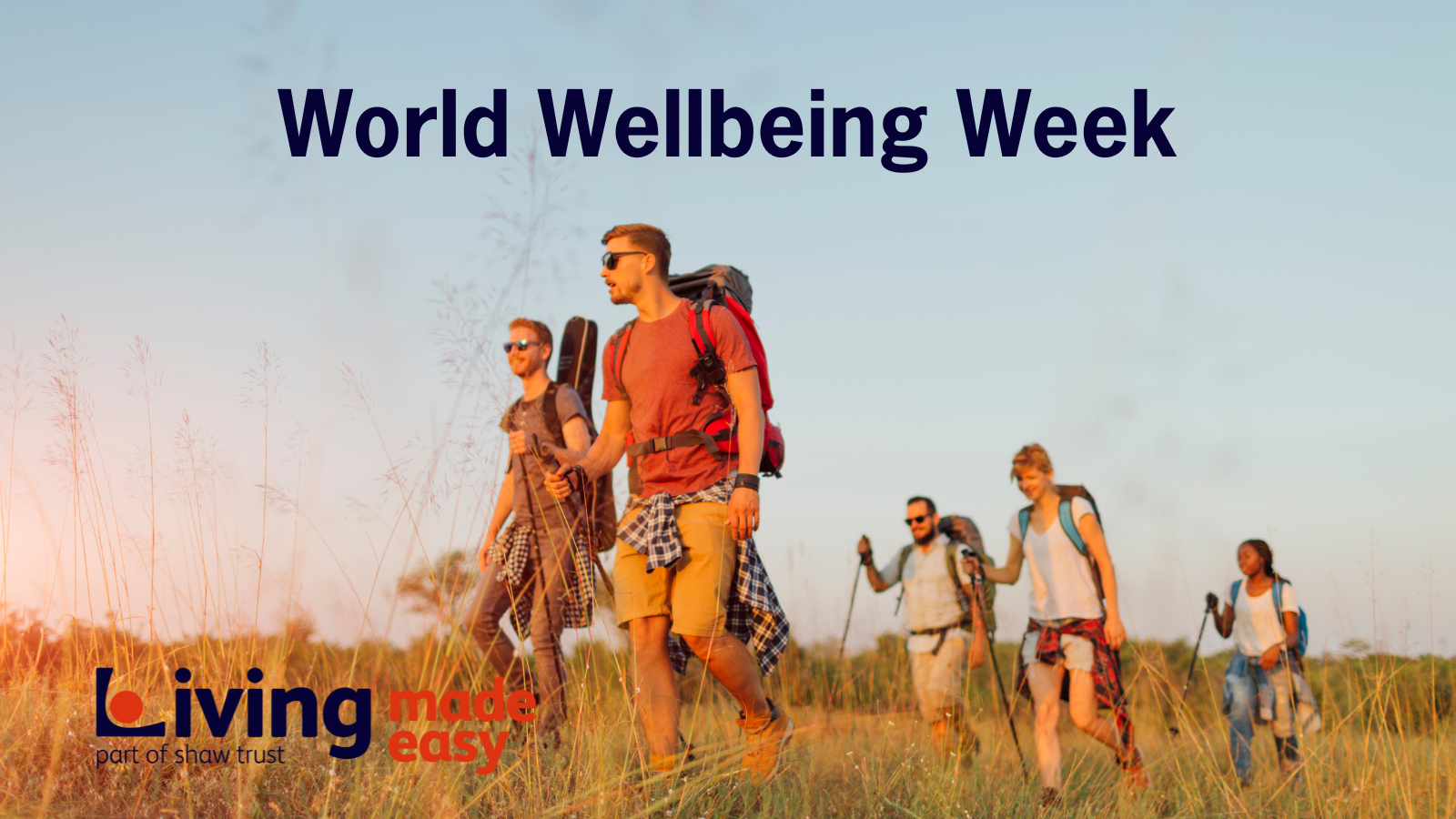World Wellbeing Week

This week is World Wellbeing Week, and 2023 is its fifth year in providing participants worldwide to celebrate the many aspects of wellbeing. Wellbeing has never been so important to our lives and livelihoods, and this week offers up the opportunity to promote an overall awareness for the wide-ranging aspects of wellbeing. These include social, physical, emotional, financial, career, community, and environmental wellbeing.
What is Wellbeing?
Wellbeing starts with life satisfaction and feeling in control of our lives. This includes how we are doing as individuals, communities and as a nation, and how sustainable that is for the future. It comprises of environmental factors that affect us and how we function in society, and the individual experiences we have throughout our lives. Broken down simply into three overall factors this means:
- Individual Wellbeing – are we functioning well and feeling good internally and mentally?
- Community Wellbeing – being well as a community and having the essential conditions to flourish and fulfil our potential.
- National Wellbeing – how we are doing as a national as a whole, made up of the individuals, communities and how sustainable that is for the future.
Some people do find it hard to gain a positive sense of individual wellbeing, which is why World Wellbeing Week was created. It’s aims are to educate and empower anyone who may be struggling with their mental wellbeing. Good wellbeing not only indicates that we are happy and have a sense of life fulfilment, but also helps us to avoid mental health difficulties.
The NHS has outlined 5 simple steps that are proven to help improve your wellbeing.
- Connect with others – by creating meaningful relationships with others, we are likely to feel a sense of belonging and self-worth. You can also gain emotional support from these relationships.
- Keep active – being active is not only great for physical health, but it’s proven to improve your mental wellbeing. Even a few short walks per week can help raise your self-esteem. Ramblers are organised walking groups held up and down the country that hold Wellbeing Walks. Visit their website to find a Wellbeing Walk near you and connect with others whilst keeping active.
- Learn something new – developing new skills broadens the mind and raises self-esteem. Take up learning a new language, baking, or writing a blog; even if you feel as if your life is too busy to learn something new, you’ll see it’s a great opportunity for escapism.
- Give back to others – small acts of kindness towards other people, or bigger commitments such as volunteering, are great ways to improve mental wellbeing. It creates positive feels and a sense of reward, whilst creating a sense of purpose and a way of connecting with others.
- Focus on the present moment - paying more attention to the present moment can stop feelings of worry or anxiousness about the past and the present. Some people call this ‘mindfulness’. Mindfulness teaches that we are often at our happiest when we focus on the present moment. It can positively change the way you feel about life and how you approach challenges. Breathing and meditation exercises are great ways to practice mindfulness. You can find easy to follow exercises on YouTube.
.png)
As stated above, wellbeing can be described as life satisfaction, purpose and control. Shaw Trust is the largest prime provider of the Work and Health Programme (WHP), with three contracts commissioned by the Department for Work and Pensions. Participants on the WHP receive structured, personalised support from a dedicated Support Manager who will ensure they can access localised help and services to manage their health conditions whilst progressing their ambitions to secure and retain a job. On average, most people spend a third of their lives at work, so being out of work or being unhappy at work, can bring feelings of low self-esteem, loss of control and anxiety. By giving participants the confidence to get back into work, or the support they need to retain their roles, helps to build towards life satisfaction and a good state of individual wellbeing, which also has a positive impact on community wellbeing.
For more information on signing up to the Programme speak to your Work Coach at the Job Centre Plus or take a look at the WHP website.
It’s important to know your viewpoint on your wellbeing will change frequently, depending on many factors in our personal lives, we all go through high and low moments. But, by trying to practice the steps above and improve on our general state of wellbeing, the aim is to make the low moments as infrequent as possible. If you are really struggling to keep a positive state of wellbeing it might be helpful to speak with a Health and Wellbeing Practitioner. They can help to evaluate and assess your current state of wellbeing, and may direct you to further support such as the Counselling service.
This article has been brought to you by Living Made Easy and the Health and Wellbeing Services at Shaw Trust. We hope you have found this article helpful and informative. If you are looking for more information about how to improve your wellbeing, please click on the bold and underlined text, or find some helpful links below.
- NHS Better Health
- World Wellbeing Week
- Wellbeing World
- Psychiatry UK
- NHS Wellbeing
- What Works Wellbeing
- Ramblers
- CiCWellbeing
- Shaw Trust Work and Health Programme
- Shaw Trust Health and Wellbeing